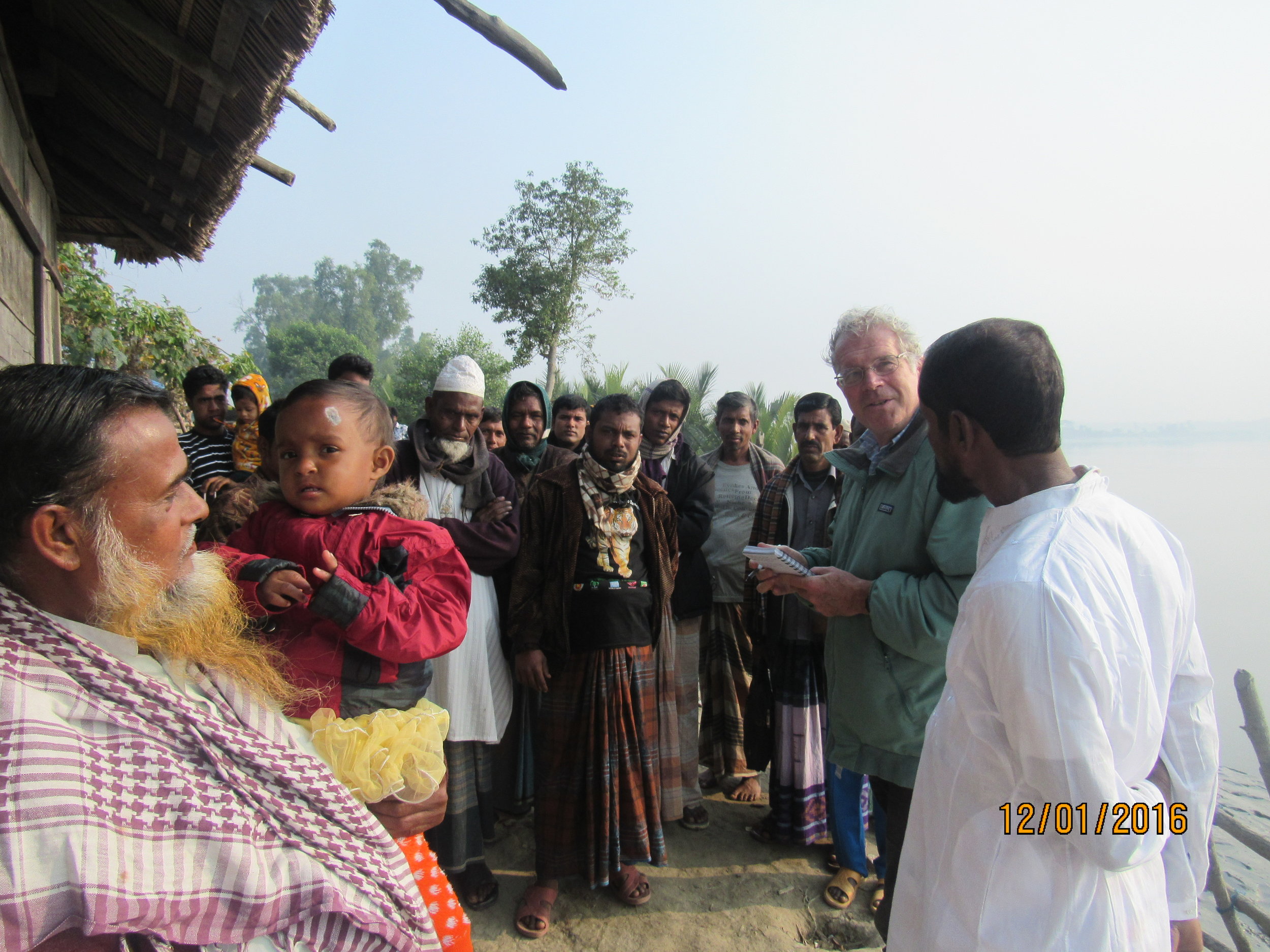“Rai jabe bagh hoye ailo khaite dayar ma bonbibi ailo bonete” “When [Dakhin] Rai came as a tiger to eat me, Kind Mother Bonbibi came to the forest [to save me]”
-spoken by Dukhe, honey collecting boy
“I am Mother of all beings in the land of the eighteen tides. Anyone who calls me Mother is relieved of suffering. No injury comes to those in danger who call for me”
-spoken by Bonbibi, Goddess-Protectress of the Sundarbans
“Listen to my vow- I shall never harm he who appeals to You for protection”
- spoken by Dakhin Rai, Evil Tiger Demon, addressing Bonbibi
Verses from the 19th C. Bonbibi Jahuranama, narrative text read aloud by Hindu priests to mixed Hindu and Muslim devotees before altars with painted votive images of Dukhe, Dakhin Rai, Bonbibi, and others during Bonbibi Puja held every January in the Sundarbans
Still fearing the tiger that swims across the narrow tidal creek separating their goat pens from the forest preserve, the men of Kalabagi were not ready to rely on the protection of Bonbibi alone. To prove his point, village elder Abdul Bari showed off his leg scars where it had taken a paw swipe while climbing the tree after him. Abdul Bari’s neighbor and Tiger Response Team leader Farouk Hosein now had a gun.
Twelve year old Hridoy Mullah was not much older than Dukhe the boy honey collector who himself was almost eaten. In the story, Bonbibi heard his call and saved him. Hridoy was too busy banging his pot in fear for his life- a tiger was on the prowl in Kalabagi that night- to invoke Bonbibi’s name.
I was in the Bangladesh Sundarbans to write about the interplay of tide and forest, and man and environment, but tigers were still on my mind even though a recent count by bait station and camera trap had estimated only 100 of these large cats were on this side of the border.
The Bonbibi Jahuranama tells the syncretic Islamic-Hindu story of Bonbibi, daughter of Ibrahim and born in Mecca, who the angel Gabriel (Jibril) takes to the Sundarbans to protect forest workers from the Tiger Demon Dakhin Rai. The poor honey collector boy Dukhe is abandoned in the forest by a greedy merchant as his self-enriching sacrifice to Dakhin Rai. Dukhe’s timely prayer to Bonbibi saves him and all is forgiven at the end. Dukhe, now wealthy from honey and bees wax, marries the merchant’s daughter and Dakhin Rai accepts Bonbibi’s overlordship.
For the men of Kalabagi it is not so simple. Abdul Bari has seen thirteen tigers face to face in his life and never once Bonbibi. Has Hridoy Mullah even heard of Dukhe? No, he says, and he has never collected honey and bees wax in the forest. Both products are in short supply and heavily controlled through harvest permits. Does he know the name Bonbibi? Yes, he says. She lives in the forest and can make us rich if we pray to her.
Note the tiger on the black shirt of the man (standing center)
images of Dakhin Rai (Tiger God), Dukhe (in blue shirt), and Forest Goddess Bonbibi
at a Bonbibi Puja, Bangladesh Sundarbans, January 2016


